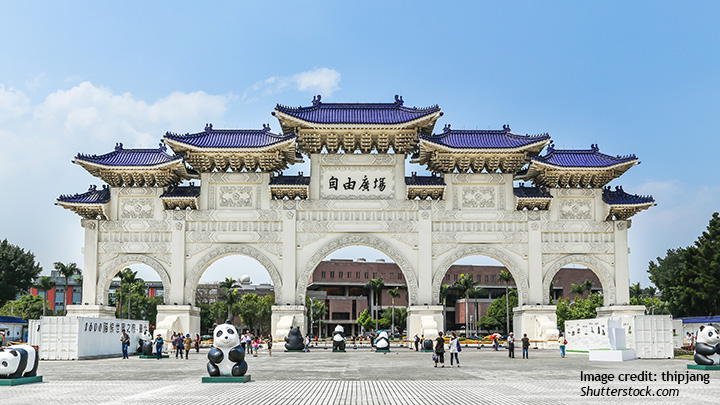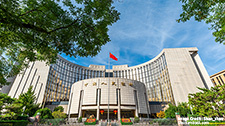Unpacking Beijing’s Narrative on Taiwan

Zsuzsa Anna Ferenczy
Executive Summary
- Shaping economic rules, technology standards, and political institutions have been the core pillars of Chinese leader Xi Jinping’s efforts to advance his authoritarian model and weaken democratic processes and governance. Beijing’s priority remains to shape the international discourse to its advantage and promote “democracy that works”. A “battle of narratives” has emerged whereby China continues to challenge and undermine democracy, the rule of law, and human rights, values that Taiwan has committed to pursuing in its own development.
- In its relations with third countries, Beijing has imposed its One China principle, falsely asserting that the world had signed up to the claim that there is only “One China” and Taiwan is part of it. Recently Beijing has also ramped up political and military pressure on Taiwan, seeking to further shrink its international space.
- The EU has its own One China policy, in light of which member-states recognize the PRC as the sole legal government of China and maintain economic and cultural ties with Taiwan. The recent rhetorical alignment between Beijing and Moscow in light of Putin’s war of aggression against Ukraine has increased the sense of urgency in the EU to strengthen its resilience in close cooperation with like-minded partners.
- Maintaining peace and stability in the Indo-Pacific is in the interest of the EU, Taiwan, and the PRC. Yet, convergence that benefits all stakeholders looks highly unlikely. At the same time, the complexity in these ties will likely increase rather than decrease, further challenging the work of policy-makers who follow developments in the region.
- Beijing’s intimidation, pressure, and coercive measures have wider implications beyond Taiwan; they challenge democratic governance as a political system. For an effective EU response, understanding these complexities is more urgent than ever.
- The EU, and democracies in general, must enhance public awareness of the complex reality of Taiwan’s relations with the PRC, including Beijing’s instrumentalization of its One China principle to undermine democracies’ sovereign right to cooperate with Taiwan.
- The EU remains reactive in countering Beijing’s discourse; it must better explain its One China policy and help to counter the false narrative that distorts its own stance on Taiwan.
- The EU’s approach to Taiwan has to adapt to the changing reality. It must be proactive and avoid adopting Beijing’s language, especially concerning the One China principle.
- Taiwan must address the China challenge with a whole-of-society approach involving the government, civil society organizations, and social media platforms. The EU and Taiwan must work closely together to address common challenges.
Related Publications
-
The Political Split at the Heart of Taiwan’s Struggle against Foreign Disinformation
Taiwan’s struggle against foreign disinformation and concerns about China’s impact on its 2024 election has received much international attention recently. This issue brief examines the domestic and international politics behind […]
-
Russia-DPRK Space Cooperation: It’s Politics, Not Science
The recent Vostochny summit between North Korean leader Kim Jong Un and Russian President Vladimir Putin has attracted much international attention. The fact that both leaders pledged to strengthen bilateral […]
-
Slowly Taking Off: Nordic-Taiwan Relations
Taiwan has in recent years attracted increasing attention all over the world. It has become the focal point of conflict in the U.S.-China rivalry in the Indo-Pacific and has also […]
-
The Economic Leash: China’s Financial Tethers and Global Power Plays
China’s emphasis on Gross Domestic Product (GDP) growth and its integration into global markets have allowed it to wield significant influence internationally. Nonetheless, this focus on rapid expansion has created […]
-
Taiwan and International Organizations – Between Security, Cooperation and Identity
International organizations are a historical point of contestation between the People’s Republic of China (PRC) and the Republic of China (ROC), today commonly known as Taiwan. As of 2024, only […]




